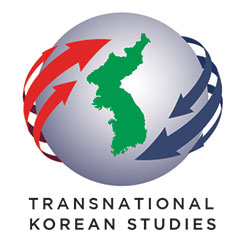Collaborative Connections
In addition to our transnational focus, a third area of strength that distinguishes our program is its collaborative connections to Japanese Studies, Chinese Studies, Ethnic Studies, Science Studies, and Critical Gender Studies. These trans-programmatic connections manifest themselves in a number of innovative and productive ways. At the level of curriculum, for example, our students benefit from taking courses from the perspective of culture and other critical contemporary issues, such as gender/sexuality and race/migration. For example, students taking Professor Henry’s course on modern Korean history (HIEA 150) not only earn full credit in the History department but also can use this course for partial credit in Japanese Studies and the Critical Gender Studies Program.
In this context, we are focusing our intellectual activities and collaborations to build Korean Studies synergistically. In particular, we use a cluster approach that takes advantage of our deep regional expertise on Korea and the thematic strengths of other Asian and non-Asian studies programs. This approach motivates the events/programs we offer, broadens the range of Transnational Korean Studies courses, and helps create linkages with other programs on campus. These clusters include the following:
- Korean Cities and Urbanism (Profs. Todd A. Henry, Kyong Park, and Nancy Kwak)
- Korean/Asian Diaspora (Profs. Todd A. Henry, Jin-Kyung Lee, Yen Le Espiritu, and Nancy Kwak)
- War and North Korea’s Role in the World (Profs. Stephan Haggard, Todd A. Henry, Jin-Kyung Lee, and Daniel Widener)
- Korean Art/performance (Profs. Kyong Park, and Kuiyi Shen)
- Minorities in Korea (Profs. Todd A. Henry, Joseph Hankins, Lee, John Skrentny, and Daniel Widener)
- Korean Popular Culture in Comparative/Transnational Perspectives (Profs. Jin-Kyung Lee, Nancy Guy, and Ping-Hui Liao)
Moreover, this dynamic program benefits from the participation of affiliated faculty members pursue research and/or teaching on Korea in its relation to other nation-states in the context of broader regional and global networks and their cultures.
